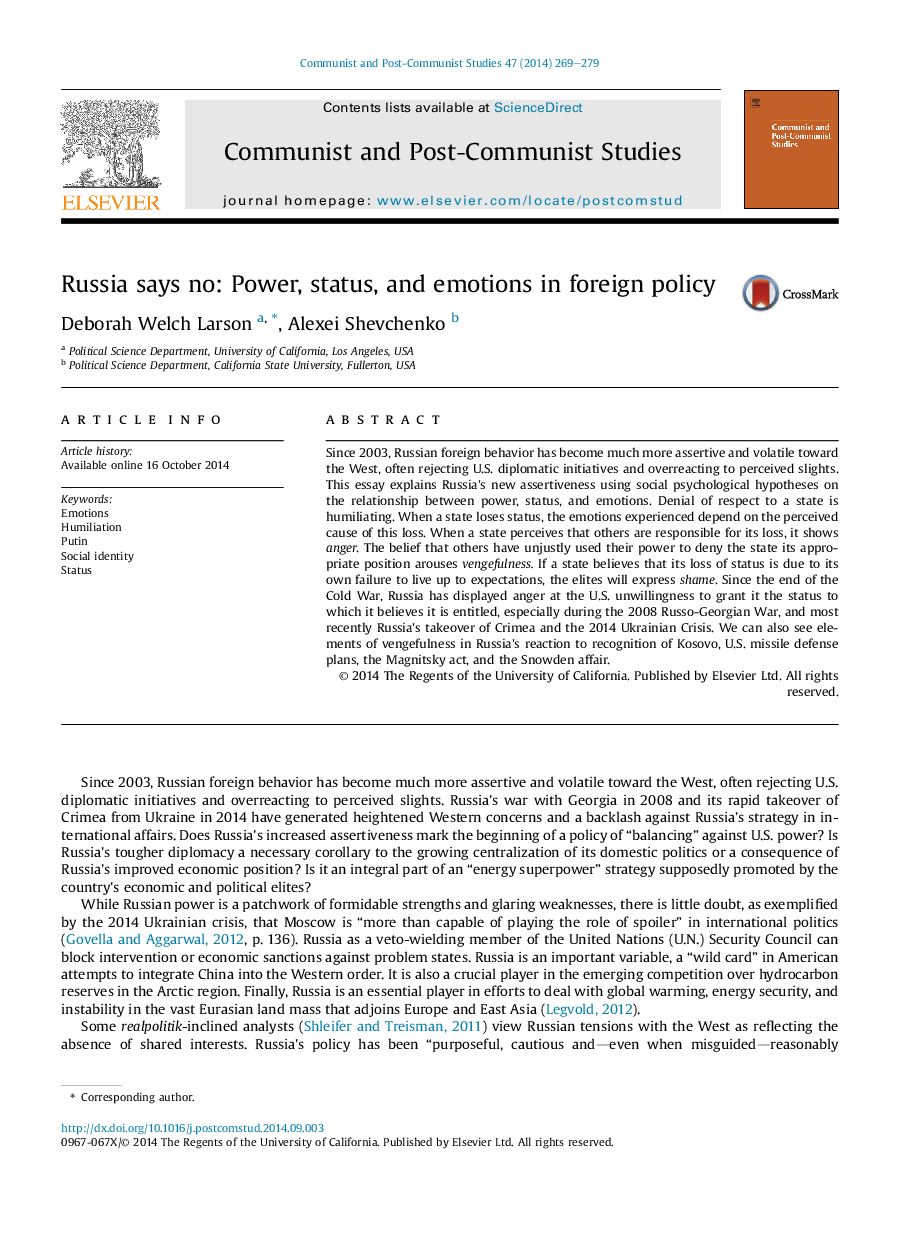| کد مقاله | کد نشریه | سال انتشار | مقاله انگلیسی | نسخه تمام متن |
|---|---|---|---|---|
| 1046355 | 1484380 | 2014 | 11 صفحه PDF | دانلود رایگان |
Since 2003, Russian foreign behavior has become much more assertive and volatile toward the West, often rejecting U.S. diplomatic initiatives and overreacting to perceived slights. This essay explains Russia's new assertiveness using social psychological hypotheses on the relationship between power, status, and emotions. Denial of respect to a state is humiliating. When a state loses status, the emotions experienced depend on the perceived cause of this loss. When a state perceives that others are responsible for its loss, it shows anger. The belief that others have unjustly used their power to deny the state its appropriate position arouses vengefulness. If a state believes that its loss of status is due to its own failure to live up to expectations, the elites will express shame. Since the end of the Cold War, Russia has displayed anger at the U.S. unwillingness to grant it the status to which it believes it is entitled, especially during the 2008 Russo-Georgian War, and most recently Russia's takeover of Crimea and the 2014 Ukrainian Crisis. We can also see elements of vengefulness in Russia's reaction to recognition of Kosovo, U.S. missile defense plans, the Magnitsky act, and the Snowden affair.
Journal: Communist and Post-Communist Studies - Volume 47, Issues 3–4, September–December 2014, Pages 269–279
